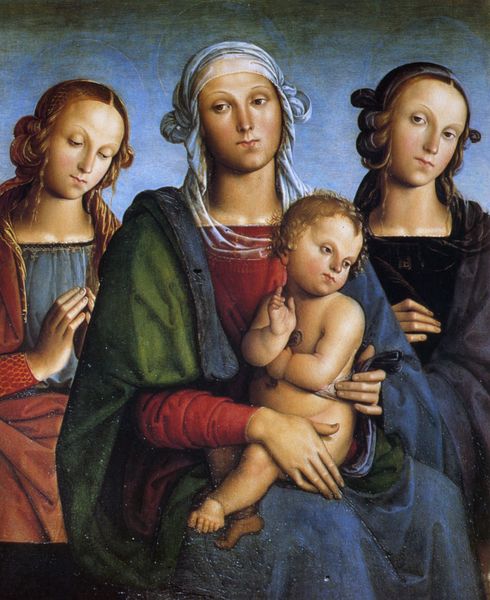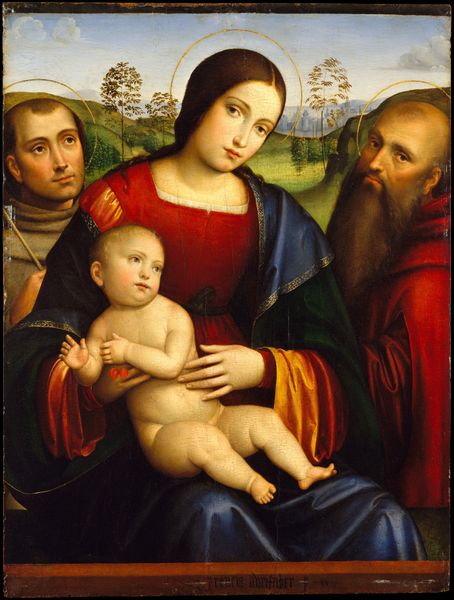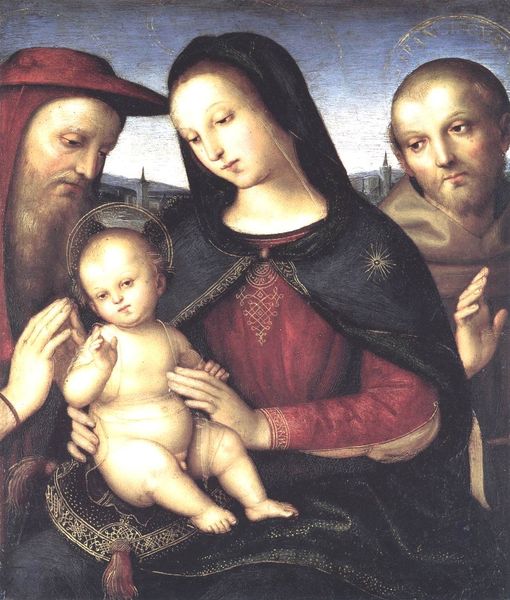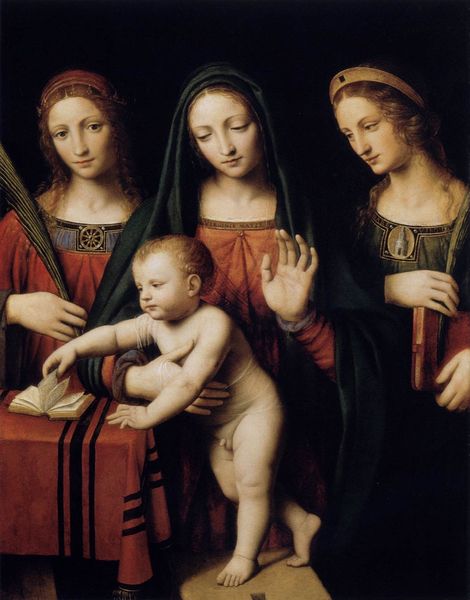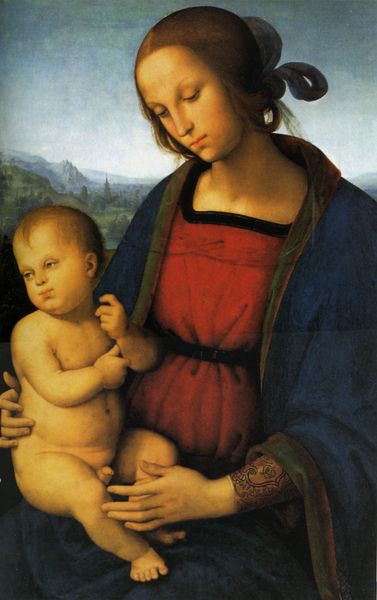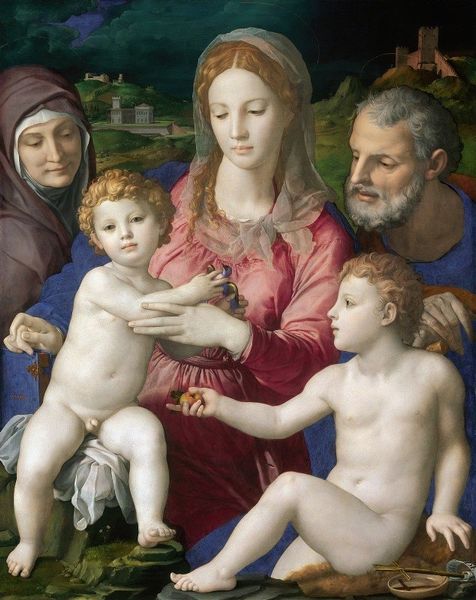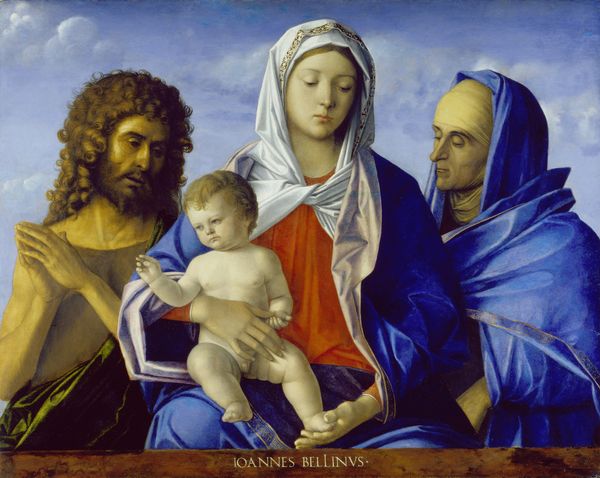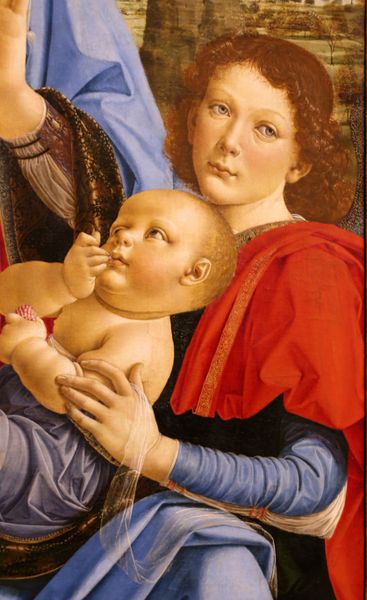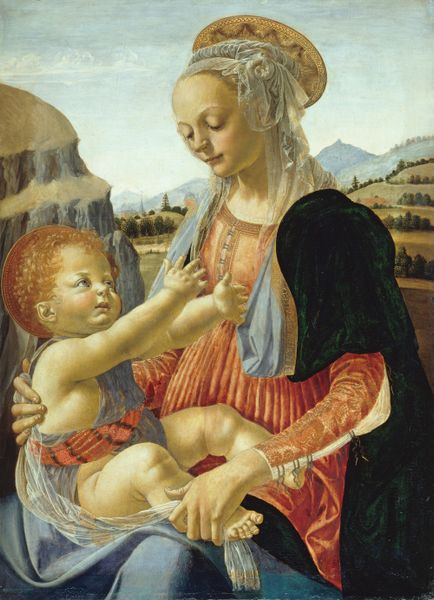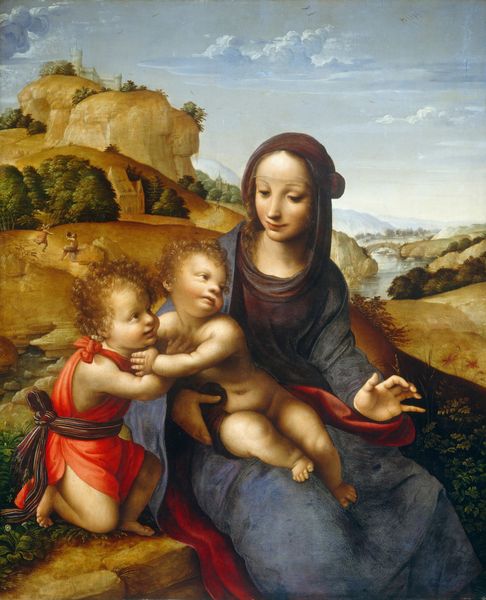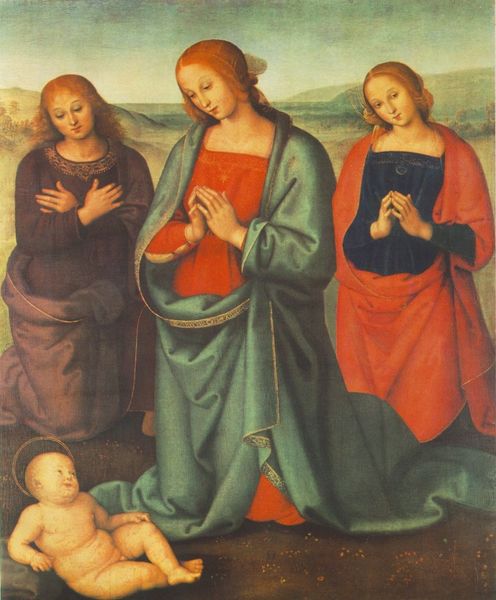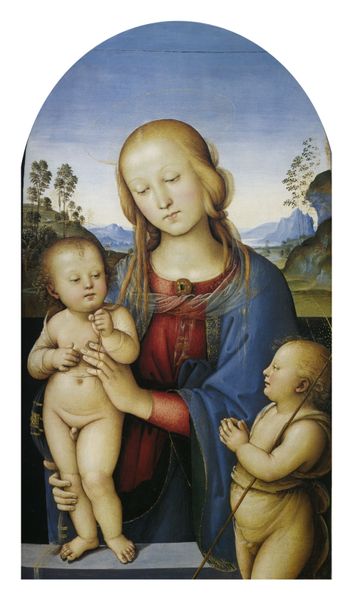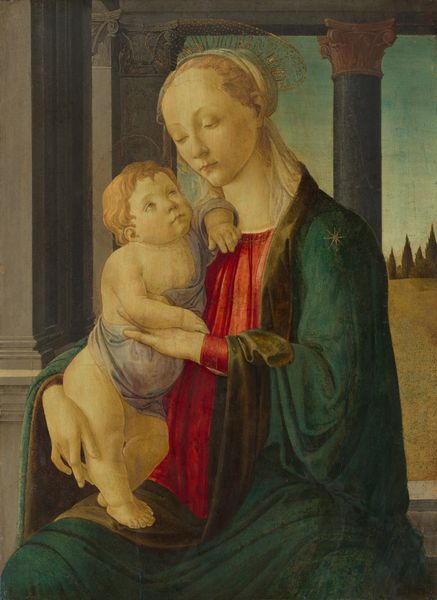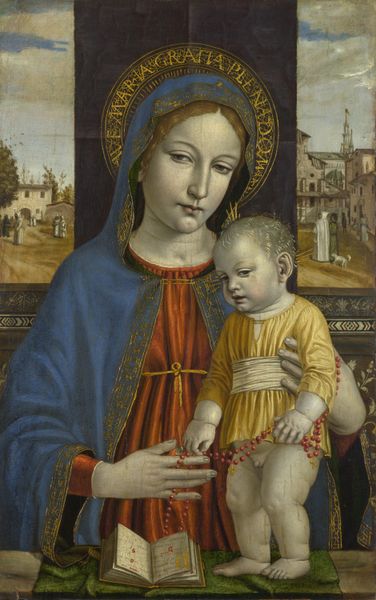
Madonna and Child with St. Catherine and St. Rosa 1493
0:00
0:00
painting, oil-paint
#
portrait
#
high-renaissance
#
painting
#
oil-paint
#
figuration
#
madonna
#
oil painting
#
group-portraits
#
christianity
#
history-painting
#
italian-renaissance
Dimensions: 63 x 86.5 cm
Copyright: Public domain
Editor: Here we have Pietro Perugino’s "Madonna and Child with St. Catherine and St. Rosa," an oil painting dating to 1493. There's something very serene, almost too still, about the figures in this piece. How would you interpret it? Curator: Perugino painted this during a fascinating time. Consider the patronage system. Religious paintings like this were often commissioned by wealthy families seeking to solidify their status and piety. How does the formal presentation – the idealized beauty and placid expressions – contribute to this social function? Editor: So it's less about personal devotion and more about public image? Curator: It's a delicate balance. There’s genuine religious sentiment, certainly. But the controlled emotion and aesthetic refinement signal the patron's sophistication and moral standing. Notice how Mary’s garments and the overall color palette suggest wealth. Do you think the painting flattens the representation of these women to simple pious icons? Editor: I guess I hadn’t thought about it that way, but yes, in a way they become symbols. Curator: Exactly. And by placing themselves, or their family members, near these saints, the patrons were making a statement about their own position within the social hierarchy and their access to divine grace. These paintings become valuable indicators of the aspirations and social politics of the era. Editor: It’s fascinating to see the historical context embedded in the artwork itself. It adds a layer of understanding I wouldn’t have considered at first glance. Curator: Precisely. By examining art through a socio-political lens, we begin to unlock these deeper meanings and understand the true public role art holds.
Comments
No comments
Be the first to comment and join the conversation on the ultimate creative platform.
